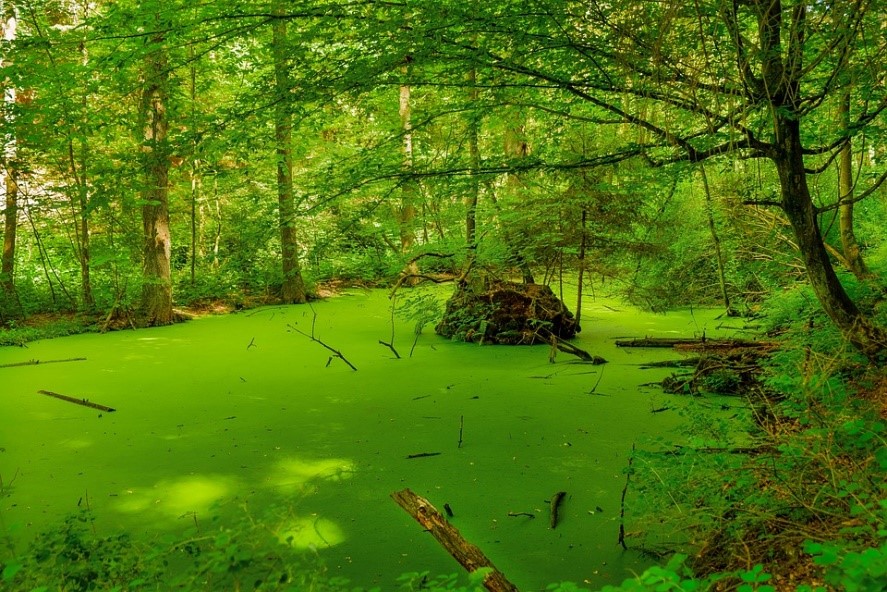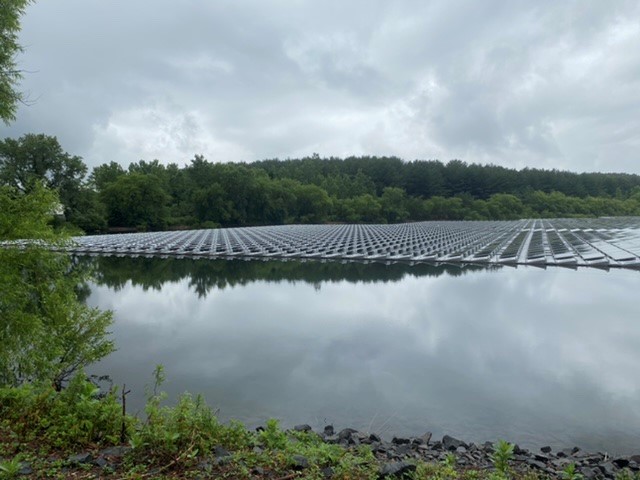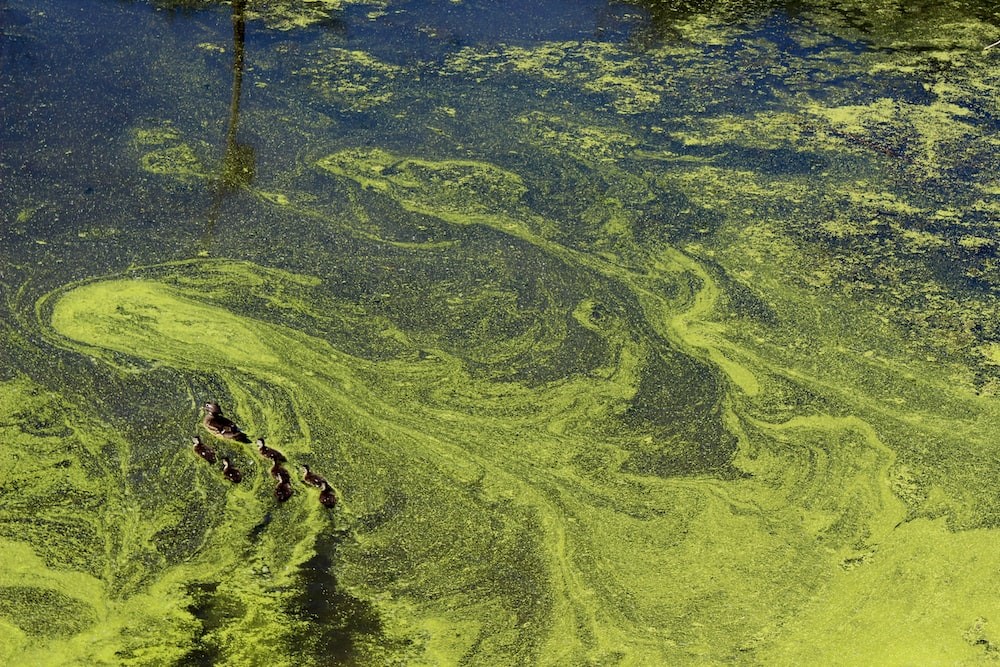Controlling Harmful Algal Blooms
Lakes, ponds, and reservoirs are susceptible to unfavorable algae blooms. Algae thrive in warm stagnant water with excess nutrients, often resulting in algae blooms spreading rapidly in the summer. While some algae are harmless, several species can be harmful to humans, pets, and wildlife. The most common harmful algal bloom (HAB) is cyanobacteria, also known as blue-green algae.
 How do you know if algae are harmful?
How do you know if algae are harmful?
Distinguishing between toxic HABs and non-toxic algae is not always easy. Indications of HABs include scum, foam, or mats on the water surface. Toxic algae can turn water green, blue, brown, or red, and sometimes looks like spilled paint. HABs can also be identified by having a septic, fishy, or gasoline-like smell.
How can you prevent or reduce algae?
The three most common techniques to control the spread of HABs include using chemicals (algaecides), ultrasonic technology, and aeration. Algaecides (aquatic herbicides used to treat algae) can be effective at controlling algae when used properly. Algaecides require frequent dosing of the entire water surface, and can therefore be expensive, especially for large water bodies. Ultrasonic technologies are a more environmentally friendly option, and work with small and large water bodies. This method uses sound waves that cause algae to sink to where they cannot get enough sunlight to survive. Aeration controls algae by using a fountain or sub-surface aeration system to maintain healthy levels of dissolved oxygen in the water. Aeration systems can be designed for small or large water bodies, but can be expensive due to maintenance and high energy use.
 Another interesting and novel method of reducing algae can be the use of floating solar panels. Floating solar is a newer technology with the primary purpose of producing power, but has also been found to help reduce algae in the same water body. Floating solar shades the water surface, reducing the temperature of the water, and therefore reducing HABs that are more prolific in warm water. This dual purpose can be especially effective for water treatment plant reservoirs since HABs can be particularly challenging to drinking water sources.
Another interesting and novel method of reducing algae can be the use of floating solar panels. Floating solar is a newer technology with the primary purpose of producing power, but has also been found to help reduce algae in the same water body. Floating solar shades the water surface, reducing the temperature of the water, and therefore reducing HABs that are more prolific in warm water. This dual purpose can be especially effective for water treatment plant reservoirs since HABs can be particularly challenging to drinking water sources.
If you have any questions or concerns regarding algae, call Walden today at 516-559-6976.

Read about the water quality work that we do at Walden here. Contact us at 516-559-6976 if you would like to learn more about the services that we provide.
